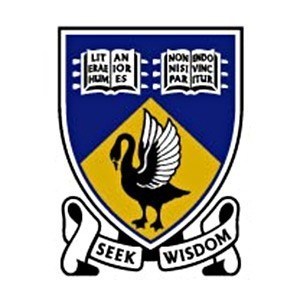Photos of university / #universitywa
The Bachelor of Physics at The University of Western Australia offers students a comprehensive and rigorous curriculum designed to develop a deep understanding of the fundamental principles governing the universe. This program provides a solid foundation in core areas such as classical mechanics, electromagnetism, thermodynamics, quantum physics, and astrophysics, along with opportunities to explore more specialized fields like condensed matter physics, optical physics, and computational physics. Students will engage in both theoretical studies and practical laboratory work, honing their analytical, problem-solving, and experimental skills essential for careers in research, industry, or further academic pursuits. The program emphasizes critical thinking and quantitative reasoning, integrating modern technology and computational tools to simulate and analyze complex physical phenomena. Students can take advantage of the university’s state-of-the-art laboratories and research facilities, participating in innovative projects and collaborating with leading experts in the field. The Bachelor of Physics also provides pathways for postgraduate study and research opportunities, preparing graduates for diverse roles in academia, government agencies, and the private sector. Throughout the program, students are encouraged to develop strong communication skills, enabling them to effectively convey complex scientific ideas to both specialist and general audiences. The curriculum is designed to be flexible, allowing students to tailor their degree with elective courses aligned with their interests, including interdisciplinary areas such as environmental physics, biomedical physics, and materials science. With a focus on scientific inquiry and discovery, the Bachelor of Physics at UWA positions students at the forefront of technological and scientific advancements, equipping them with the knowledge and skills necessary to contribute meaningfully to society and drive innovation in various scientific fields.
Level 1
- Physics for Scientists and Engineers
- Advanced Physics A
- Modern Physics
- Advanced Physics B
- Mathematical Methods 1
- Engineering Mathematics
- Mathematical Methods 2
Level 2
- Quantum Mechanics 1 and Electromagnetism
- Mathematical Methods 2
- The Physics of Particles
- Mathematical Methods 3
Level 3
- Electrodynamics and Relativity
- Mathematical Physics
- Frontiers in Modern Physics
- Quantum Mechanics 2 and Atomic Physics
- Astrophysics and Space Science
| Mathematical Physics |
-
All international students at UWA are required to pay tuition fees for their programs of study. The tuition fee is based on the student's course of study. Fees increase on an annual basis.New students should refer to their Acceptance of Offer Contract and once enrolled, their Statement of Account for tuition fees.
- AUD $100 application processing fee (credit card payment accepted).
- Your contact details.
- Supporting documentation (such as your English language competence test results, academic transcripts, passport ID page and other documentation for course-specific requirements).
- Academic transcripts must be uploaded as one single collated PDF only (not as separate PDF pages).
- You must meet the English language requirements of the University to be eligible for a place.IELTS - Overall score minimum of 6.5, no band less than 6.0 (must include Academic Reading and Writing modules). TOEFL - Essay Rating / Test of Written English (TWE) of 4.5 and either 230 (Computer-based) or 570 (Paper-based) score. Next Generation TOEFL - Internet-based Test (iBT): An overall score of 82 with a minimum score of: 22 in the Writing section;18 in the Reading section; 20 in the Speaking section; and 20 in the Listening section.
The University provides two types of scholarships for students who may be experiencing financial hardship:
- UWA Swans Rural Scholarship
- UWA Swans Scholarship
The Bachelor of Science in Physics at The University of Western Australia offers students a comprehensive education in fundamental and applied physics, preparing graduates for careers in research, industry, and academia. The program provides students with a solid foundation in classical and modern physics, including mechanics, electromagnetism, thermodynamics, quantum mechanics, and statistical physics. Through a combination of lectures, laboratory work, and research projects, students develop strong problem-solving skills and a deep understanding of physical principles that underpin the universe.
The program is designed to cultivate analytical thinking, experimental skills, and the ability to apply theoretical knowledge to real-world problems. Students can choose elective units to tailor their studies towards specific interests such as astrophysics, condensed matter physics, or medical physics. The curriculum emphasizes both theoretical understanding and practical experience, with opportunities for students to engage in cutting-edge research alongside leading academics.
Students enrolled in the program benefit from access to state-of-the-art laboratories, computing facilities, and collaborative research initiatives. The program also offers pathways into postgraduate study and research, preparing graduates for further specialization or careers in science communications, education, or technology sectors. Graduates of the Physics program at UWA are well-equipped to contribute to scientific advancements, innovation, and problem-solving in various industries and research settings, both within Australia and internationally.
The program duration is typically three years for full-time students, with part-time options available. Entry requirements generally include a minimum ATAR score or equivalent, completion of prerequisite high school subjects, and adherence to English language proficiency standards. The university's Physics program emphasizes a balanced approach between theory and practice, fostering a rigorous understanding of physical concepts and their application.
Overall, the Bachelor of Science in Physics at The University of Western Australia provides a challenging and rewarding academic experience, opening doors to diverse career opportunities or further academic pursuits in physics and related fields. The program is continuously updated to reflect current developments in physics, ensuring students gain relevant and up-to-date knowledge that prepares them for future scientific endeavors.










